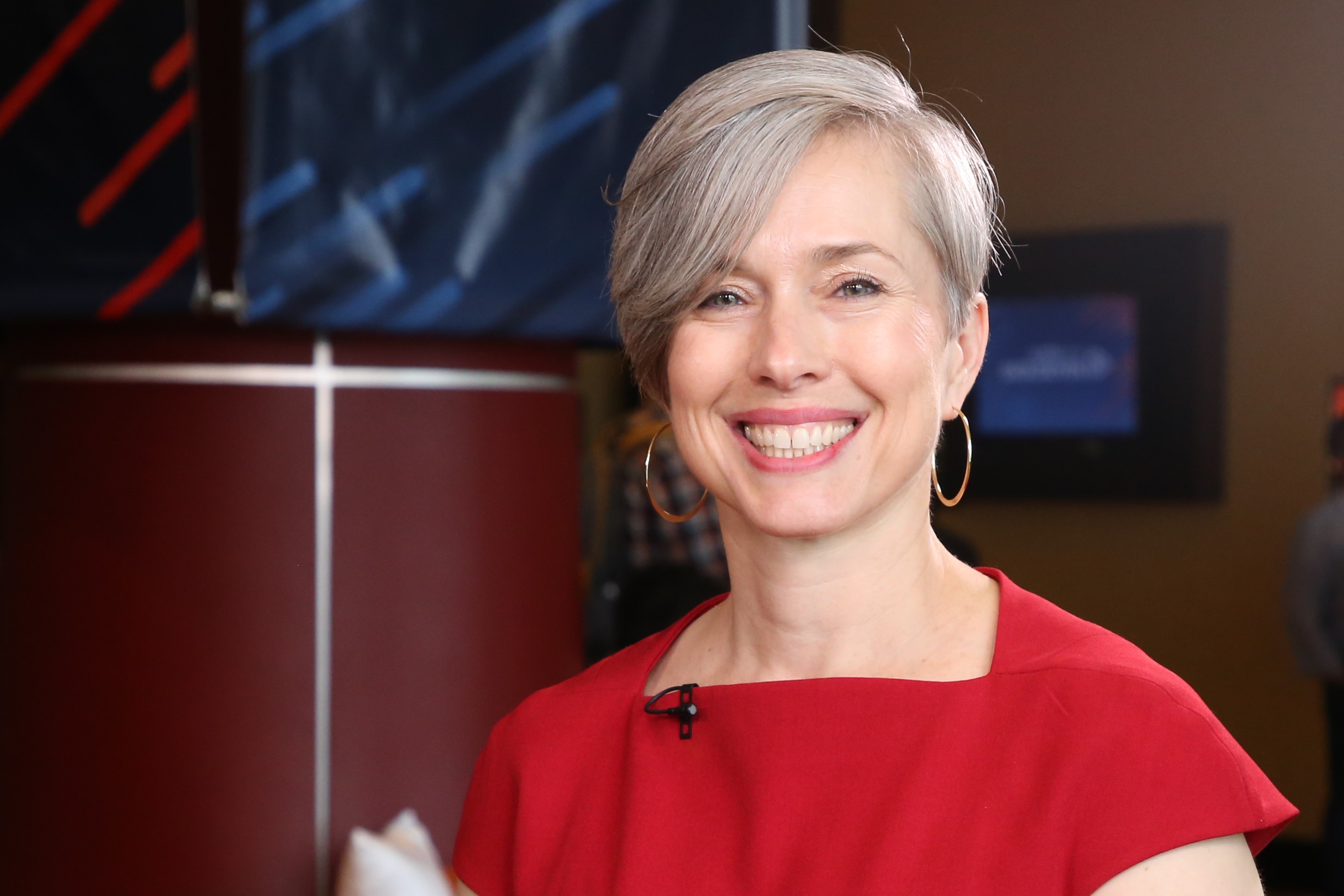 BIG DATA
BIG DATA
 BIG DATA
BIG DATA
 BIG DATA
BIG DATA
State government isn’t always the first place to seek out innovative ideas in the era of digital information technology. Dragged down by legacy systems and antiquated culture, state IT departments traditionally struggle to fulfill their citizens’ basic requirements. Major sites, including Florida, New Mexico and the California legislature, are still not encrypted, and some still have design elements popular in the early 2000s.
Not so in Massachusetts. The state’s ultramodern website, launched in 2017, is a flexible, open-source platform that gathers relevant data to continually improve user experience on the site.
“Our mission is to use the best information in technology to ensure that every user’s experience with the Commonwealth is fast, easy and wicked-awesome,” said Holly St. Clair (pictured) chief digital officer and chief data officer for the state of Massachusetts’ Executive Office of Technology Services and Security.
St. Clair spoke with Dave Vellante and Stu Miniman, co-hosts of theCUBE, SiliconANGLE Media’s mobile livestreaming studio, during the Actifio Data Driven event in Boston. They discussed data management tactics and St. Clair’s goals for Massachusetts state IT (see the full interview with transcript here.) (*Disclosure below.)
This week, theCUBE spotlights Holly St. Clair in its Women in Tech feature.
“It’s rare that somebody shares the title of chief digital officer and chief data officer,” Vellante said, noting St. Clair’s dual responsibilities as a “double CDO.” The two roles are merging, according to St. Clair.
“Data fuels our digital world. It both creates the content and also monitors how we’re doing,” she said. “[The roles] are either going to be joined at the hip or it’s going to be the same person.”
St. Clair arrived at the junction of digital and data through a career in public service. A master’s degree in urban and environmental policy from Tufts University led to a position as a research analyst for the City of Boston. She soon moved to the Boston Metropolitan Area Planning Council, where her job description morphed as data grew in importance.
It was as head of the planning council’s data services department that St. Clair’s innovative vision focused. Under her lead, the council adopted advanced decision support tools, using data to model scenarios and make planning and urban policy choices for the metropolitan area.
This background in public sector data services made St. Clair an ideal candidate as the Commonwealth of Massachusetts’ first-ever chief digital (and data) officer. St. Clair was immediately tasked with transforming the face of state government in the Commonwealth. The old state website, which had been used as a “catch-all” depository for years of internal and user information, had over 250,000 pages of information.
“How to get a parking permit would be buried under five years of meeting minutes,” St. Clair said in a 2017 interview.


Screenshots of the old and new sites show the radical change from the old, cluttered, and hard-to-use interface to the new, clean design with a prominent search box and features such as tab select and audible menus that make it accessible to all.
The launch of the mass.gov site was part of a larger overhaul of the entire Massachusetts IT infrastructure. A hybrid-cloud approach is the most practical for updating legacy systems, according to St. Clair.
“I do think we’ll always have some on-prem services,” she said. “We’re not so dogmatic that it’s cloud only … but really when it’s possible, whether it’s a SaaS service, off the shelf, or it’s the cloud environment, if it makes sense, then we are moving to that.”
St. Clair takes a more nuanced view of data than the purely technical approach most people adopt. “Data is actually very creative,” she said, comparing the role of chief data officer to that of a marketing executive. “You have to tell a story in order to be good with it. It’s just a little bit of a different hue, a different type of audience, a different type of pace,” she said.
To balance her workload, she has support from colleagues such as the chief technical officer, chief security officer, privacy officer and chief information officer, who take on some of the technical tasks that usually fall to a CDO.
The common idea of how much data to collect and save has changed over the years, from the early 2000s when data was dumped ASAP to the more recent “keep-it-all” policy that gave us swamps of stagnant data.
“I often find that we’re ingesting all this data, and we don’t really know what to do with it, or really, rather, our business leaders and decision makers can’t quite figure out how to connect that to the mission or to properly interrogate the data to get the information they want,” St. Clair stated.
Data minimalism is a strategy St. Clair advocates. One of Fjord’s Digital Trends for 2019, data minimalism stresses data transparency, safe storage and use. “The idea is that you strongly connect to business objectives, to the data collection program that you have, and you don’t just collect data until you’re sure that it supports your objectives,” St. Clair explained.
“Is it going to be a hard shift back to data, as a liability?” asked Vellante.
“As with any trend, there’s always a little bit of pendulum swing as we’re learning what the equilibrium is,” St. Clair responded. There is a middle ground between destroying data and saving everything; and the key is in knowing what data to keep. Which returns to knowing the objective for collecting data in the first place.
Increased trust is another reason to be discerning with data collection. While only a few years back users were happy to hand over data freely, there is now a deep distrust of companies that collect personal data.
A 2018 IBM survey on data privacy and consumer trust found that 75% of people will not buy a product (no matter how much they want it) if they don’t trust that company to act responsibly with the data it collects; while 73% think businesses prioritize profits over data security.
The public demands even higher standards of state and federal agencies that handle sensitive and personal data. This means the triple mantra of transparency, safe storage, and safe use is even more important.
“We do have a higher bar [in the] public sector in terms of handling data in a way that’s respectful of an individual’s privacy and the security of their data. I think we should be more deliberate about our data and earn the trust of our customers,” St. Clair concluded.
Here’s the complete video interview, part of SiliconANGLE’s and theCUBE’s coverage of the Actifio Data Driven event. (* Disclosure: TheCUBE is a paid media partner for the Actifio Data Driven event. Neither Actifio Inc., the sponsor for theCUBE’s event coverage, nor other sponsors have editorial control over content on theCUBE or SiliconANGLE.)
THANK YOU